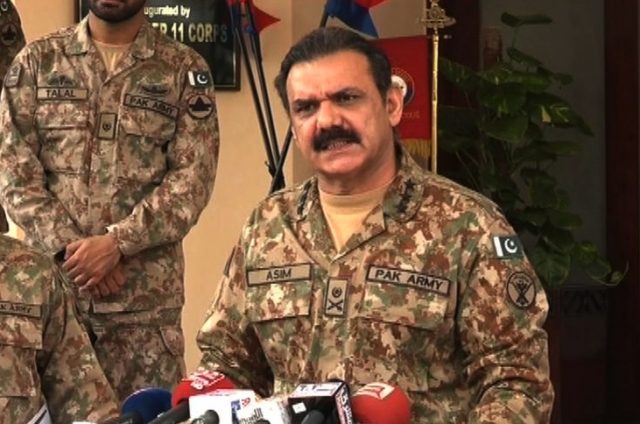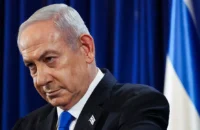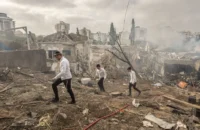A lot of Pakistan’s defense budget may get redirected in the post-Covid era, but the army isn’t going to let go. It now eyes revocation of a constitutional amendment.
Ayesha Siddiqa
Like every crisis, Covid-19 will bring its set of challenges and opportunities. For starters, the guns-versus-butter debate may be back on the table.
With the overall size of the world economy shrinking, leaders will have to decide how much they are willing to spend on real security of citizens in the form of health and personal development versus traditional military security. How Pakistan calibrates these priorities will be telling.
Despite the need for a lot of its defense budget to get redirected in the post-Covid-19 era, this will not be allowed. As it eyes the revocation of a controversial constitutional amendment that stands in the way of the military getting more resources, a recent move that everyone is watching in Pakistan is the appointment of a former ISPR official to Prime Minister Imran Khan’s media management team.
Military unlikely to rethink budget
Count it as an indirect blessing but the pandemic may just have put a brake on an incessant arms race between India and Pakistan. Although New Delhi signed arms deals during the pandemic, an aggressive military modernisation may not be possible.
This situation should not appear as a worry since the entire region finds itself in a similar situation. Pakistan, for instance, doesn’t have too many options despite getting a debt relief of US $1.38 billion from the International Monetary Fund (IMF). These resources will mostly get diverted to Islamabad paying its burgeoning external debt of US $112 billion.
Pakistan’s GDP growth rate had plummeted before the coronavirus outbreak from 5.7 percent in FY 2017-18 to 2.4 percent in FY 2019-20. Such figures do not seem to have made any dent in Islamabad’s security paradigm that continues to be tied to military security. In fact, soon after the outbreak, the government announced a supplementary grant of Pakistan Rs 11.48 billion for the China-Pakistan Security Force–South, Rs 468.2 million to the Special Communication Organisation, and Rs 90.45 million for the Nuclear Regulatory Authority.
However, the fact remains that according to the IMF predictions, Pakistan’s GDP growth rate will further reduce by -1.5 percent in FY 2020-21. This means that Islamabad will have to strategize to balance its budget or divert resources to development areas. The military does not seem inclined to take the hard step of rethinking its budget. Though DG ISPR Babar Iftikhar claimed that the army would not claim the extra allowance it is paid for domestic deployment under Article 245 of the 1973 Constitution, the organization is not about to give up more of its share. It’s certainly eyeing revocation of the 18th Amendment to the constitution, which was passed in 2010 to give greater financial autonomy to the provinces.
Notwithstanding the lack of capacity of provinces to manage money and general mismanagement, autonomy had its benefits. For example, according to a detailed study on expenditure in the health sector, all provinces had increased spending under this head.
Bajwa is the man for the job
But the military is deeply bothered because the federal government has lesser resources to give to the armed forces. Sources claim that one of the final battles between Ishaq Dar, the finance minister of the previous government and the army chief, General Qamar Javed Bajwa, was regarding funds. Dar could not give more because the funds were with the provinces. Bajwa also spoke publicly against the 18th Amendment, equating it with Sheikh Mujibur Rahman’s six points in the early 1970s.
Not surprisingly, the former DG ISPR, Lt General (retd) Asim Bajwa, has been brought back to play a more central role in media management for Imran Khan. But the retired general is certainly not being brought in to explain why there is a shortage of ventilators or masks in different parts of the country, or that the lockdown has been extended. Some believe that the general’s role will be to manage opinion as the above-mentioned constitutional amendment is got rid of.
Asim Bajwa will probably pull out all the tricks he used as the army’s media Tsar – from soft to direct coercion, stopping newspapers from printing certain news and even columns from dissenting voices or those that don’t fit the bill, creating and managing a team of social media warriors, bribing media people and much more.
The retired general was very effective in building a tall image of an otherwise dwarf-like army chief, General Raheel Sharif, and in the process, enormously expanding the military’s media wing to the degree that it was noticed and appreciated by people from across the border. In 2019, India’s Lt General (retd) Ata Hasnain, speaking at the International Institute of Strategic Studies, London, praised the ISPR’s ability to manipulate information.
Motivation requires a hefty package
The new media team is likely to ensure that things are calm at the political and societal front while the 18th Amendment is gotten rid of. This will probably be termed as fighting a hybrid-war, a concept increasingly popular in the army. Any opinion in favour of provincial autonomy will be presented as propaganda war against the state, something that the former DG ISPR is adept in. The opposition parties are already weak to the extent that no voice was raised about Asim Bajwa’s appointment who also holds the charge as the head of the CPEC Authority with a hefty pay. The silence from both the main opposition parties indicates what lies in the future – more silence as a strategic change is brought about.
Moreover, good media management will be required as the military battles other financial needs of the state. The Army GHQ understands that its personal needs are well taken care of. The state land is appropriated systemically to ensure that by the time an officer gets promoted from the rank of a major to a three-star general, he has about a dozen properties. Every promotion, war course, and performance is rewarded materially. A Corps Commander’s net value in property terms is approximately Pakistan Rs 1 billion (calculation based on the value of properties that a general gets starting from rank of a major to a 3-star). The army chiefs are even higher. The more ambitious generals try to find other means to maximise benefits. For instance, Lt General Javed Iqbal Awan was involved in espionage for which he was awarded rigorous life imprisonment. According to sources in military accounts, the Former Chairman, Joint Chiefs of Staff Committee (JCSC), General Zubair Hayat ensured a hefty compensation of millions of rupees to be added to his monthly pension for life at the two key positions he served. Over the years, the relationship between the officer cadre and national security has become extremely transactional. To motivate for better performance or to keep national secrets requires a hefty resource package.
However, these personal benefits are meant as a motivator rather than any contribution in fulfilling the military’s actual institutional needs. Though in these conditions, the threat level between India and Pakistan will remain manageable and low, the need for military modernisation remains.
Also read: Covid blurs the distinction between war and peace as soldiers worldwide fight the third army
Covid is time for restraint
Besides the search for a fifth-generation fighter aircraft, Pakistan has bought military equipment from China, Italy, Russia and Turkey. But the imports only comprise limited major weapons systems and have reduced by over 30 percent as compared to 2010. The military could cater to its needs by reducing wastage that can be calculated at anything between 20-30 percent.
Nonetheless, the Army GHQ does not seem to be in a mood to rethink its options. While the army may opt for the most obvious method of silencing dissent, the attention that Covid-19 will bring to military expenditure cannot be avoided. A friend, whom I would normally consider apolitical, was most upset at the navy’s recent missile test. Hence, in the post-Covid age, more visible acts of self-restraint and sacrifice will be required even from the most powerful of institutions.
The author is a research associate at SOAS, London, and author of Military Inc. She tweets as @iamthedrifter.



























